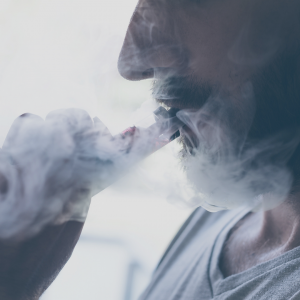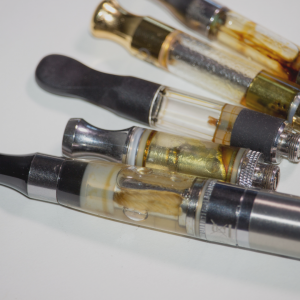Juul is facing lawsuits on multiple fronts. Our lawyers are focusing on vaping injury and vaping addition cases in young people who plaintiffs’ lawyers argue were targeted by Juul.
There is a vaping crisis in the country that snuck up on everyone. There are stories every week about the growing number of vaping-related illnesses and injuries appearing at hospitals. According to a recent Washington Post article, there are now 18 reported deaths related to a mysterious vaping illness, along with over 1,000 other possible cases of vaping-related injuries. It may well be that many of these specific cases have little to do with Juul. But this crisis has everyone taking a close look at Juul.
The sharp increase in reports has caused a significant backlash against vaping companies such as Juul, who has dominated the e-cigarette market for the past two years. Vaping and e-cigarette lawsuits against Juul and other companies are increasing by the day. There has even been a strong push in some states to completely ban the sale of e-cigarette and vaping products. Many experts maintain that recent vaping injury reports are just the tip of the iceberg for the e-cigarette industry.
Despite all the recent concerns about the dangers of e-cigarettes, however, there seems to be no shortage of teenagers and young adults using vape products. In fact, many vape users are pushing back against the scrutiny and demanding they have a right to use these devices. Even as more reports of vaping-related deaths come out, users are unwavering in their support.
One thing is clear: Juul and other vaping products have achieved their goal of creating nearly an entire generation that’s hooked on nicotine.
What Is Juul?
If you’re new to this whole vaping trend, you may not know the difference between a regular vaping device and a Juul. Let’s be clear, a Juul is a type of nicotine vape, but it’s worse than just that. Juul has become the vape of choice for most teenagers and young adults because of three things: its size, flavor, and potency.
A Juul device is small enough to fit in your hand and is shaped like a USB flash drive. It can be used discreetly and is easily portable in pockets, purses, or even wallets. Each Juul is equipped with a Juul “pod”, which is a small cartridge filled with nicotine and flavoring. There are a wide variety of flavors to choose from, with many flavors tasting just like fruit, candy, or desserts.
One Juul pod is packed with an incredible amount of nicotine, which has successfully created a dedicated consumer market of people who depend on getting their fix. Regular vapes and e-cigarettes generally contain a nicotine range between 6 to 30 milligrams per milliliter. The average traditional cigarette contains about 12 milligrams. Compare that to a single Juul pod, which has 59 milligrams. In other words, one Juul pod is equal to an entire pack of cigarettes. There are some experts arguing that a Juul pod may provide even more nicotine than a regular pack of cigarettes, as some nicotine in a cigarette is lost from filtration, whereas a Juul contains no filter. It’s no surprise that people have become mindlessly hooked on this device.
How Are Juuling and Vaping Harmful?
When e-cigarettes and vapes first came out, they based their entire marketing strategy on the claim that their products were safer than regular cigarettes and “free” of any harmful chemicals. As we can clearly see now, this is not proving to be the case.
When it comes to the recent vaping-related deaths, experts could not pin down what the exact cause is. On the CDC website, it clearly states “the investigation has not identified any specific e-cigarette or vaping product (devices, liquids, refill pods, and/or cartridges) or substance that is linked to all cases”. Still, this doesn’t mean harmful chemicals haven’t already been found in vaping products.
One chemical that has been labeled as being potentially dangerous is a chemical known as diacetyl. Diacetyl is used in e-liquids and helps with the flavoring of the juice. It’s usually a harmless additive in its original form, but changes once it’s exposed to heat. When diacetyl is vaped at a high temperature, it becomes highly toxic and can cause significant respiratory distress if inhaled. The chemical is associated with a condition called popcorn lung. Popcorn lung is a rare condition that damages small airways in the lungs, making it difficult to breathe and causing acute coughing fits. If left untreated, popcorn lung can lead to complete respiratory collapse.
Another chemical that users and doctors have been speaking out against is the chemical called propylene glycol, or PG for short. This is another chemical that is widely used in the liquid of many e-cigarettes to enhance certain flavors. PG is known for causing adverse respiratory effects in users who are particularly sensitive to the chemical. Hundreds of e-cigarette users have voiced complaints about vaping liquids with PG causing swollen lymph nodes, sore throat, inflamed airways. This reaction to PG is some users has become so widespread that e-cigarette manufacturers now offer “PG-free” liquids, although this title can be misleading, because these liquids still contain a small amount of the chemical.
In one new study that has come out, testing showed high levels of nicotine concentrations found in Juul devices are “sufficiently high to be cytotoxic, or toxic to living cells when tested in vitro with cultured respiratory system cells”. This is an important study because it applies to Juul specifically. Most vaping products do not have an issue with becoming cytotoxic since the nicotine levels never reach a high enough concentration to become dangerous. But Juul has become infamous for its highly intoxicating e-liquids that produce a much stronger and more rapid “high”.
Initial Vaping Lawsuits
Dozens of vaping lawsuits have already been filed across the country. Most of them against e-cigarette leader Juul Labs Inc. Some of the first lawsuits against Juul and other manufacturers were filed by state and local governments seeking to hold the companies liable for the costs of vaping addiction among their residents. North Carolina and Lake County, Illinois were the first to file these types of public addiction lawsuits.
More recently public school districts have filed their own similar lawsuits against Juul. Just last month the public-school districts for St. Charles, Missouri and Olathe, Kansas filed separate public addiction lawsuits against Juul in federal courts. All these public addiction lawsuits by school districts and local governments make similar accusations that Juul deliberately boosted the nicotine potency of its product, then targeted its marketing at teens. The result was an epidemic of teens addicted to nicotine from vaping.
Similar wrongful addiction lawsuits have been filed against Juul by groups of private individual plaintiffs in California, Florida, and Illinois. Most of the plaintiffs in these cases have suffered no physical injuries aside from their physical addiction to nicotine. However, some somentiffs in these cases allege that vaping caused serious respiratory injuries. A teen in Chicago has filed suit against Juul and the gas station where he bought the e-cigarette product after he was hospitalized for serious respiratory injuries linked to vaping. As the vaping safety crisis continues to expand and evolve, Juul and other manufacturers will defend more and more of these lawsuits across the country. Most legal experts predict that we will see a mass wave of vaping lawsuits over the next few years.
Juul Versus the World
Normally, when a company like Juul comes under attack, you can expect lobbyists to provide political cover. Juul has spent a fortune trying to gain influence in Washington and in individual states to protect a rainy day just like this one. Why is the money not buying them protection? The arguments for Juul are not hard to manufacture. We are letting alcohol and tobacco companies make a fortune off of our children. Why single out Juul?
Yet Juul’s efforts really have not worked. President Trump, who gets a lot of campaign capital from traditional tobacco groups, was quick to turn on Juul, to the point of arguably framing the company by comingling other types of vaping injuries with Juul.
A part of the problem is the allegations that Juul marketed specifically to minors. Did alcohol and traditional tobacco companies do that? They did. But this is 2019.
Besides a class action type lawsuit from Juul users, the FDA might also pursue a lawsuit. How? The Food, Drug, and Cosmetic Act of 1938 gives the FDA the standing to bring a lawsuit if Juul’s product labeling does not give “adequate warnings against use in those pathological conditions or by children where its use may be dangerous to health.”
How Do I Qualify for a Vaping Lawsuit?
Our firm is currently looking for potential vaping cases from across the country. There are two different categories of vaping lawsuits our law firm is exploring: (1) wrongful addiction cases; and (2) vaping injury cases.
- Wrongful Addiction Cases: In the wrongful addiction cases the plaintiffs allege that improper marketing or misleading claims about product safety led them to try Juul (or another product) and that they subsequently became physically addicted to the nicotine in these products. Plaintiffs in these types of cases allege that their addiction is their injury and are seeking compensation for the associated costs.
- Vaping Injury Cases: The second category of vaping lawsuits includes cases in which an individual has suffered physical injury or death because of vaping. There have been 18 reported cases of vaping related deaths and several thousand reported cases of serious respiratory injury. These individuals can file a traditional product liability lawsuit against the e-cigarette or vaping companies.
To qualify as a plaintiff under our law firm’s criteria for either category of vaping lawsuit, the individual’s very first exposure to nicotine must have been through Juul or another vaping product (i.e., people who never smoked traditional cigarettes before vaping).
For wrongful addiction lawsuits, the individual must under our criteria have been under age 25 at the time they started vaping. For respiratory injury lawsuits, the individual can be any age, but there must be no history of prior smoking and the injury had to occur at least 30 days after regular use. If you meet these criteria, you may have a case on your hands we want to explore with you.
Contact Miller & Zois About Vaping Lawsuits
If you meet the criteria described above and believe that you may have a valid case against Juul or another vaping device manufacturer, contact our office today for a free consultation. We will evaluate the validity of your claim and tell you whether you have a potential claim. Contact us by phone at 800-553-8082 or contact us online.
 Maryland Injury Law Center
Maryland Injury Law Center




